
- Topics 1543
- Industrial 59
- Troubleshooting Guides 32
- Restaurant Management 142
- Bar Management 66
- Catering Tips 41
- Bakery Management 48
- Food Trucks & Concessions 47
- Advertising & Marketing 40
- Eco-Friendly Tips 11
- Facility Layout & Design 49
- Coffee Shop Tips 31
- Installation & Maintenance 60
- Janitorial & Pest Control 35
- Safety & Sanitation 112
- Startup Tips 111
- Menu Design 11
- Kitchen & Cooking Tips 104
- Hospitality Management 26
- Pizza & Sandwich Shop Tips 30
- Smallwares 40
- Food Prep 102
- Tabletop Items 20
- Disposables 26
- Calculators & Tools 8
- Consumables 71
- Warewashing & Laundry 22
- Cooking Equipment 101
- Food Storage & Refrigeration 54
- Beverage Equipment 39
- Office Supplies 5
Religious Food Certification Labels
Long before the U.S. Government developed rules and regulations for food manufacture, two prominent religions in the world had their own specifications, procedures, and rules for the production of food and drink. Judaism and Islam each have their own distinct certification methods, kosher and halal respectively, which apply to every aspect of food production and consumption.
What is Kosher?
Kosher is derived from the Hebrew term kashér, which translates to "fit" or "proper" for consumption. For an ingredient or product to be kosher, it must meet the requirements of kashrut, which is a set of Jewish dietary laws that are laid out in the written Torah (the Bible) and the Oral Torah (the Mishnah and Talmud).
Despite popular belief, kosher does not mean the food was blessed by a Rabbi. The product is considered kosher as long as the means of production and the product itself conform to the laws and guidelines of the faith. In many instances it is beneficial or required for a Rabbi, or someone with Rabbinical training, to be present because of the complexity of kosher laws and the depth of knowledge required for proper certification. Listed below are four components that can help give a basic understanding of kosher food.
Components | Criteria |
|---|---|
Food Sources: |
|
Kosher Meat Preparation: |
|
Separation of Meat and Dairy (Pareve): |
|
Kosher for Passover: |
|
Common Kosher Certification Agencies
A kosher certification agency is an organization or certifying authority that verifies that the ingredients, machinery used, and the production process all comply with the standards of kashrut. Each agency has its own identifying symbol that foodservice manufacturers and providers can display on their packaging and marketing materials to allow their customers to quickly identify a product as kosher.
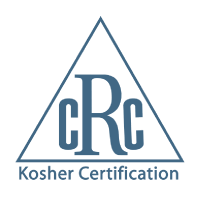

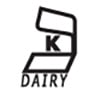



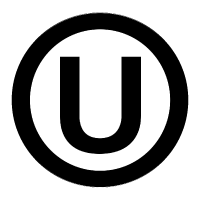
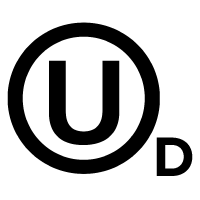

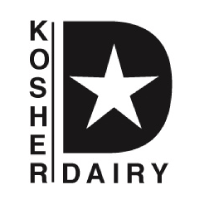


The OV certification comes from Vaad Hoeir of St. Louis, MO, the governing body of the St. Louis Orthodox Jewish community.
What is Halal?
Halal is an Arabic word that translates to "lawful" or "permissible". Although the term applies to a variety of life's daily tasks, when it relates to food it concerns the composition of the product and the environment in which it was produced.
As far as food and drink goes, it may be easier to distinguish what is not halal than it is to label what is. All foods are considered halal unless they are strictly forbidden, or haram. Under Islamic law, the following food and drink are not permitted:
- Pork and its by-products
- Animals which were dead before slaughtering
- Alcoholic drinks and intoxicants
- Animals which have not been slaughtered using the halal method
- Carnivorous animals and birds of prey
- Blood and blood by-products
- Animals which have been contaminated with any of the above
Common Halal Certification Agencies
A Halal certification agency is an organization or certifying authority that verifies that a product is permissible under Islamic law to be consumed or used by Muslims.
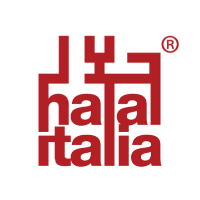
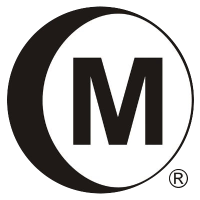
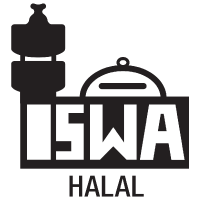
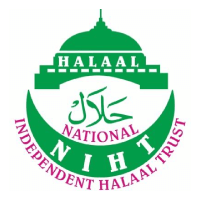
Allergen Free and Specialized Diets Food Certifications
With increased consumer demands for menu transparency, developing a menu that caters to those with allergies and welcomes specialized diets is becoming more and more essential.
What is Gluten-Free?
Gluten is a protein found in wheat, barley, rye, and triticale. For something to be gluten-free, it must obviously lack the presence of gluten. If a food item bears the "Certified Gluten-Free" label on its packaging, the U.S. FDA requires that it needs to contain less than 20 parts per million (ppm) of gluten.
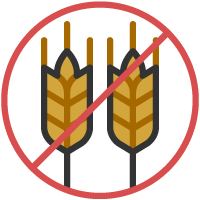
Shop All Gluten-Free Foods
What is the Difference Between Vegetarian and Vegan?
While there are many forms of vegetarianism, the most common vegetarian diet is one that does not eat any meat, including beef, poultry, game, fish, or shellfish. A vegan diet is the strictest form of vegetarianism. This diet avoids all animal and animal-derived products, including meat, dairy, and eggs. Veganism also extends into excluding non-food items, such as leather and animal-tested beauty products.
As vegetarian and vegan products and meals continue to become more mainstream, accommodating vegans and vegetarians in your restaurant is a smart choice for your business. Plus, it usually requires little change to your operation!
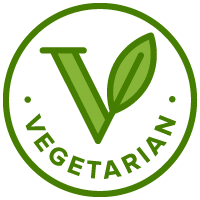
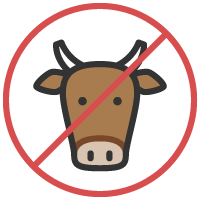
Shop All Vegan and Plant-Based Foods
What is the Difference Between Dairy-Free and Lactose-Free?
Lactose-free products are dairy products where lactose, a sugar found in milk and milk products that some people are unable to digest properly, has been removed, whereas dairy-free products are made from plants, such as nuts and grains, and do not contain any dairy at all.



Non-dairy products are different from lactose-free and dairy-free products. According to FDA regulations, "non-dairy" does not mean milk-free, as non-dairy items can contain milk proteins and derivatives such as caseinate and whey.
What Does Nut-Free Mean?
Nut allergies are among the most common food allergies consumers have. Understanding the distinction between peanuts and tree nuts is very important because these allergies do not necessarily go hand-in-hand.
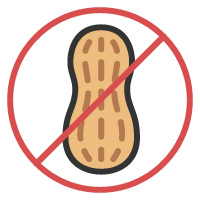
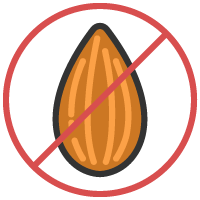
What is GMO?
GMO stands for genetically modified organism, which is any organism that has had its DNA altered through genetic engineering. As ecological and economical concerns continue to rise about the growing and use of genetically modified crops, organizations, such as the Non-GMO Project, are committed to providing verified non-GMO products for consumers.

What is MSG?
Monosodium glutamate (MSG) is glutamic acid in salt form, an amino acid found naturally in the body and in many food products. It is commonly used to enhance the flavor of foods. MSG is FDA approved, and scientific research has been conducted in an attempt to understand the potential effects of MSG. Though some consumers identify themselves as being sensitive to the ingredient, no conclusive evidence has been found.

What Does "Made with Natural Ingredients" Mean?
We define a product as natural if it is derived from natural sources and it's made, preserved, sweetened, colored, and flavored with naturally occurring ingredients. A product that is not made with natural ingredients if it contains any artificial ingredients, colors, or flavors, includes added MSG, and/or includes any antibiotics or hormones.

Governmental and Organizational Food Certifications
In addition to what is in their food, consumer demands for knowing how their food was handled, is it actually good for them, and where it came from are becoming a greater concern. Therefore, government, third party, and non-profit organizations have emerged to help create programs that certify businesses and farmers who comply with standards that promote social, environmental, and economic sustainability.
What is Fair Trade?
Fair trade is a social movement with the goal of improving the lives of agricultural producers in the developing world by selling some of their goods at above-market prices. The movement also aims to educate workers on how to take advantage of the free market system in order to remain profitable, regardless of changes in the global market.
When you purchase a product with a fair trade symbol on it, a portion of your purchase is going towards helping support farmers and cooperatives in foreign countries, which in turn supports their local communities with jobs, social development projects, and a number of other benefits.
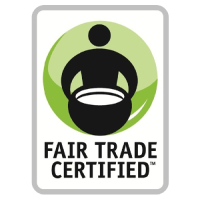
What Does USDA Organic Mean?
According to the USDA, products that are certified USDA organic must contain at least 95 percent organic ingredients, leaving a five percent margin for non-organic ingredients as long as they are on an approved list. Organic ingredients cannot contain, or be produced with, chemicals, additives, synthetics, pesticides, or genetically engineered substances. Manufacturers are required to list organic as well as non-organic ingredients on the product label along with the name of the organic certifier.
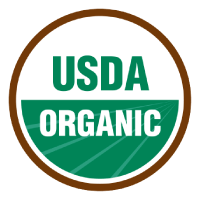
Shop All Organic Foods
What Does Rainforest Alliance Certified Mean?
The Rainforest Alliance is an international non-profit organization committed to creating and improving responsible and sustainable business practices. They work with farms, forestry, and tourism enterprises to ensure that they are complying with the program's standards on ecosystem conservation, wildlife protection, and fair treatment and good working conditions for workers.
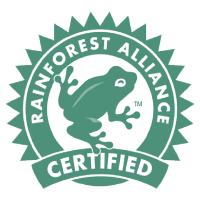
What is Certified Sustainable Seafood?
Sustainable seafood certifications aim at shifting consumer behavior to purchase seafood from manufacturers that are committed to sustainably raising or wild-catching seafood in a manner that does not jeopardize the ecosystem.
While there are a variety of sustainable seafood certifications, the Marine Stewardship Council (MSC) certification and Best Aquaculture Practices (BAP) certification are two of the most well-known sustainable seafood certifications in the industry.
- The MSC is an international non-profit that provides science-based requirements for wild-caught fisheries to meet that ensure their catch is traceable and sustainable.
- The BAP certification is a third party program that monitors and ensures sustainability is being met at each step of the aquaculture production chain.
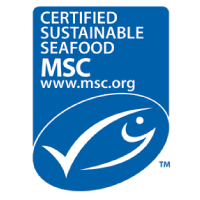
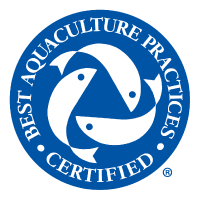
Shop All Sustainable Seafood
What is Dolphin-Safe Tuna?
Dolphin-safe tuna is tuna that is caught without setting purse seine nets on or to encircle dolphins. Furthermore, vessels that catch tuna need to provide written documentation to some manufacturers that no dolphins were killed or seriously injured in their nets or harvesting processes.

What Does American Humane Certified Mean?
The American Humane Certified program is dedicated to improving the lives and handling of farm animals and providing consumers with humane food choices. Their program implements species-specific standards that are based upon rigorous scientific research and are routinely reviewed by animal science professionals and veterinarians.
With over 200 welfare standards, including standards on adequate space for animals, quality air, water, heating, lighting, shade, and the animals' ability to engage in natural behaviors, their program provides complete assurance that products with the American Humane Certified seal came from humanely raised animals.
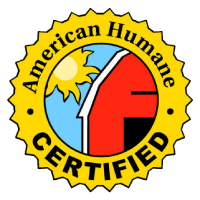
What is the Difference Between PDO and PGI Status?
An item with Protected Designation of Origin (abbreviated to PDO in English, DOP in Italian, and AOP in French) status ensures a product is traditionally and entirely manufactured in a specific geographical location/region that is attributed to the product's unique characteristics/quality.
An item with Protected Geographical Indication status (abbreviated to PGI in English and IGP in Italian) ensures a product is traditionally and at least partially manufactured in a specific geographical location/region that is attributed to the product's unique characteristics/quality.
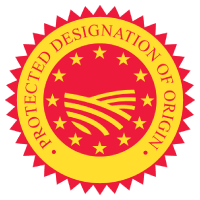
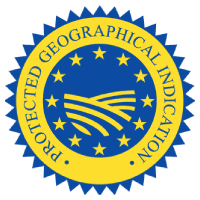
Related Resources

Accommodate More Customers with Gluten-Free Baking
Have you ever been curious about why some people go gluten-free? As many as 3 million people in the United States are diagnosed with Celiac disease. Those who have this disease cannot eat and properly digest gluten products without harming their small intestine. As awareness of this disease has increased over time, owners of bakeries have started to accommodate their customers with this intolerance by adopting gluten-free baking operations. Not to mention, gluten-free diets for individuals without Celiac disease are growing in popularity, and you can capitalize on that by producing gluten-free goods. This being said, if you are interested in catering to customers with gluten-free diets, it's important to have a basic understanding of gluten
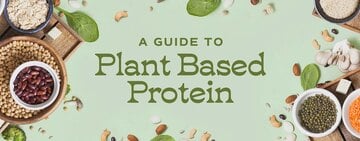
Plant Based Meat Substitutes
Are you curious about adding more plant-based dishes to your menu? The key to creating a satisfying meatless dish that's loved by omnivores, vegetarians, and vegans is to use plants that pack a lot of protein. Protein gives the feeling of fullness, takes longer to digest, and satiates the appetite. We've made a guide to introduce you to the most popular plant-based proteins with tips on how to incorporate them into the dishes you already make. Shop All Meat Substitutes Click below to learn more about plant-based meat alternatives: Tofu Seitan Tempeh Yuba Soy Curls Ground Beef Substitute Veggie Burgers Plant-Based Chicken Grains Nuts and Seeds Beans Plant-Based FAQs Plant Protein Chart Do plants contain protein? Yes! Check out the chart belo
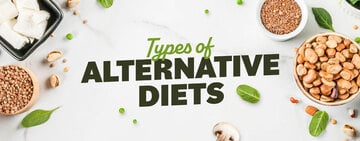
Types of Alternative Diets
As the foodservice industry continues to evolve, it is becoming increasingly important for businesses to accommodate their customers' dietary needs and preferences. In recent years, there has been a significant rise in the number of individuals following alternative diets. These alternative diets are not just passing trends but rather lifestyle choices or medical necessities for many people. By understanding the specific requirements and the challenges these diets may pose for foodservice establishments, businesses can make informed decisions about how to accommodate them and provide their customers with a wide array of delicious and satisfying options. Shop All Vegan & Plant-Based Foods Use these links to learn more about popular alternati

